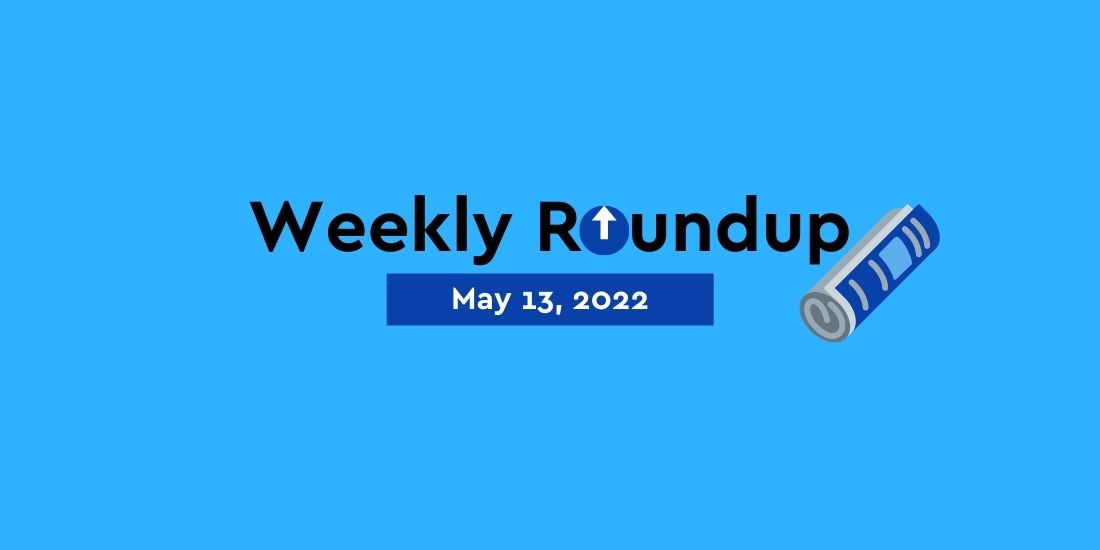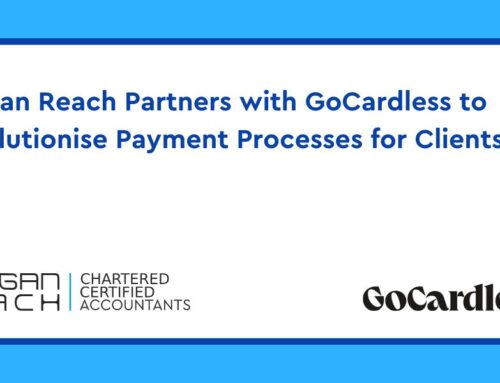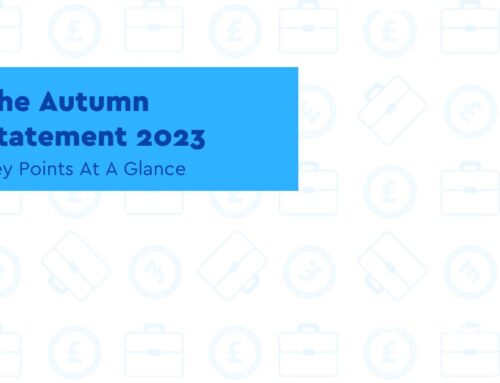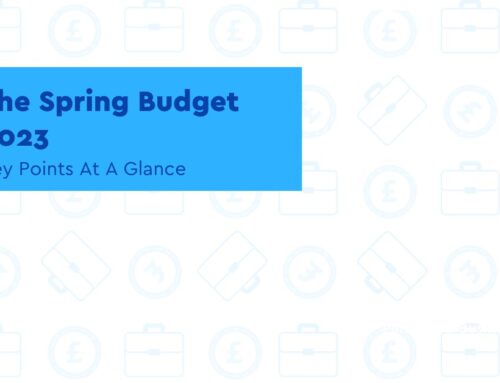News – HMRC
HMRC updates forms for employers wishing to submit employee benefits
Key Points
- The deadline for getting P11D forms filed is July 6, whether you’re filing digitally or on paper
- Form updates have been made for the 2021 to 2022 tax year, including car and car fuel benefit
Form P11D is a document employers use to tell HMRC about the employment benefits employees have received. You must submit an end-of-year report to HMRC for each employee you’ve provided with expenses or benefits in the tax year ending April 5.
The deadline for getting P11D forms filed is July 6, whether you’re filing digitally or on paper.
You do not need to submit a P11D form for an employee if you’re paying tax on all their benefits through your payroll.
Doing it via the Payrolling Benefits in Kind (PBIK) system means that the value of an employee’s benefits is calculated over the whole year and the tax on them taken out through the company payroll.
You’ll still need to submit a P11D(b) form so you can pay any Class 1A National Insurance you owe.
The following form updates have been made for the 2021 to 2022 tax year:
PAYE: living accommodation (P11D WS1)
If you’re an employer, you can use form:
- P11D WS2 worksheet to calculate the cash equivalent of car and fuel benefit you provide to an employee or director
- P11D WS2b worksheet to calculate the cash equivalent of car and fuel benefit you provide via optional remuneration arrangements to an employee or director
PAYE: car and car fuel benefit (P11D WS2 and WS2b)
Use form P11D WS2 and P11D WS2b if you’re an employer and need to work out the cash equivalent of providing car and fuel benefit to an employee.
PAYE: private use of company van (P11D WS3)
If you’re an employer and provide an employee or director with private use of company vans, you can use the P11D WS3 worksheet to calculate the cash equivalent of the benefit.
PAYE: interest free and low interest loans (P11D WS4)
If you’re an employer, you can use the P11D WS4 worksheet to calculate the cash equivalent of loans you provide to employees or directors.
PAYE: relocation costs (P11D WS5)
If you’re an employer, you can use the P11D WS5 worksheet to calculate the cash equivalent of relocation expenses and benefits you provide to an employee or director.
If you registered online for payrolling before April 6, 2021, do not include payrolled benefits on the P11D.
This article was sourced from gov.uk
News – Businesses
Business group calls for immediate emergency Budget
Key Points
- The BCC has developed a three-point action plan that would allow firms to keep a lid on rising prices
- This includes cutting VAT on business energy bills to 5 per cent for all businesses
British Chambers of Commerce call on chancellor Rishi Sunak to reverse National Insurance rise, slash VAT on energy bills to 5% and reinstate free Covid testing for businesses.
The British Chambers of Commerce has called for an immediate emergency Budget to deal with the cost crises facing businesses throughout Britain.
It has developed a three-point action plan that would allow firms to keep a lid on rising prices, boost productivity and ease cost pressures.
- Postpone the recently introduced National Insurance rise until at least 2023/24
- Cut VAT on energy bills from 20 per cent to 5 per cent for a minimum of one year, helping firms manage the impact of runaway energy prices
- Reinstate free Covid tests for companies ease the strain on productivity caused by persistent high absences combined with labour shortages
Taken together, these three steps in an emergency Budget would take the pressure off businesses which are battling to keep the economy afloat, the BCC believes — offering a route to higher productivity and future tax receipts.
The Bank of England last week warned that the UK economy would slide into recession this year as higher energy prices pushed inflation above 10 per cent.
Sunak should not wait until the autumn to intervene, when his next Budget is expected, BCC director-general Shevaun Haviland told the Financial Times. He needs to action an emergency Budget now before more businesses go under.
“It is easier to keep a business open than to get them to reopen once they have closed,” she told the newspaper.
Postponing the rise in National Insurance Contributions (NICs) would not only ease the immediate pressure on companies’ balance sheets but it would also put money back into the pockets of employees, the BCC believes – boosting consumer confidence. the economy will then be in a much stronger position to bear the increase when supply chain disruption has unwound and global factors influencing inflation have receded.
Cutting VAT on business energy bills to 5 per cent for all businesses, would provide another quick release valve on soaring costs for firms.
For example: a small business which has an energy bill of £10,000 and currently pays the standard 20 per cent rate would pay £2,000 VAT. The BCC’s proposal would see that cut to £500.
And many businesses in the UK are still seeing above average absence rates as Covid continues to impact the workforce. Around two thirds of more than 1,100 firms surveyed in April by the BCC reported staff absences due to Covid symptoms or self-isolation. New sub-variants of Omicron are reportedly leading to rising infection rates in the US and South Africa. Bringing back free testing would allow firms to limit the disease’s spread among employees.
Haviland said: “These are simple, straightforward measures that can be quickly reversed when the economy is in better shape.
“The Treasury and HMRC have proven their ability during the pandemic to implement similar changes quickly and efficiently. Making these changes would have an immediate benefit for both businesses and the public.
“The costs crises facing firms and people in the street are two sides of the same coin. If we can ease the pressure on businesses then they can keep a lid on the price rises being driven by surging energy bills, staff shortages and higher taxes.”
This article was sourced from Small Business:
https://smallbusiness.co.uk/businesses-call-for-immediate-emergency-budget-2561347/
News – Pensions Tax
HMRC repays over £22m in overpaid pensions tax in Q1, 2022
Key Points
- People reclaiming overpaid tax must fill in one of three forms; P55, P53Z or P50Z
- The ability to take money when you need it is known as flexible access
HMRC repaid a total of £22,317,529 in Q1, 2022 to people who overpaid tax when they flexibly accessed their pensions, the latest government Pension Schemes Newsletter has confirmed.
This represents a year-on-year decrease of just under £1m on the £23,183,421 repaid in Q1, 2021, and a fall of around £20m compared to Q4, 2021, when £42,188,885 was repaid.
The tax repayments on flexible withdrawals are necessary as HMRC applies an emergency ‘month 1’ tax code on the first withdrawal, which can lead to an initial over-taxation.
People reclaiming overpaid tax must fill in one of three forms, with HMRC processing 4,693 P55 forms, 1,903 P53Z forms and 816 P50Z forms between 1 January and 31 March 2022.
The newsletter also revealed that HMRC received 1,591 applications to register new pension schemes for 2021 to 2022, representing an 89 per cent decrease since 2012 to 2013.
Of the schemes that applied for 2021 to 2022, 79 per cent have been registered, 13 per cent were refused registration and no decision had been made on the remaining 8 per cent.
Flexible access to pension savings
The ability to take money when you need it is known as flexible access.
Flexi-access drawdown
With this option, you can normally take up to 25% of the value of your pension upfront as a tax-free lump sum and keep the rest invested in a drawdown plan.
Once you’ve taken your tax-free lump sum, the rest of your pension pot can be left invested. This offers the opportunity for growth, unlike an annuity which provides a fixed income.
However, once you take cash above your 25% tax-free allowance you’ll then become subject to the money purchase annual allowance (MPAA) of £4,000. This means that you can only contribute £4,000 per year, instead of £40,000.
If you’re still working, your salary plus pension withdrawal may push you into a higher tax band than if you just took the 25% tax-free lump-sum from your pension on its own.
If the total money you take out across all your pensions exceeds the lifetime allowance, you’ll pay a lifetime allowance charge on the excess. The lifetime allowance for the 2022/23 tax year is £1,073,100. The LTA will remain frozen at this level until April 2026.
Working or retired, one thing that continues is the taxing of your income, including pension withdrawals. And the size of flexible withdrawals can affect the level of income tax you pay.
For example, a large withdrawal could move you into a higher tax bracket, so plan your withdrawals carefully. (If you’re still saving, taking a flexible withdrawal from a pension also reduces the amount you can pay into all defined contribution pensions each year without losing tax relief from £40,000 to £4,000. Tax rules are subject to change and individual circumstances.)
Before withdrawing money from any private pensions, you should check what you could get from the State Pension and when you can get it. You can do this on the government’s website.
This article was sourced from Pensions Age Magazine and Gov.uk
News – Online Sales Tax
Online Sales Tax could ‘raise prices and cut wages’
Key Points
- The pandemic supercharged online sales with their proportion of all retail sales soaring from 3% in 2006 to 22% in March 2020
- For some, the OST would “level the playing field” between online retailers and the bricks and mortar retailers
Proposals for an Online Sales Tax have divided opinion, with some saying it could push up prices and discourage people buying goods and services from the web, while others suggest business rates are outdated and the industry needs to embrace the digital revolution.
HM Treasury’s consultation on proposals for an Online Sales Tax to “help rebalance taxation of the retail sector” is due to close next week.
It is seeking comments both for and against implementing such a tax in order to help fund business rates relief for the retail sector at a time when footfall remains below its pre-pandemic level.
The government acknowledged that its design “would not be straightforward” in terms of distinguishing online and offline activity “reflecting the range of transaction, delivery, and collection options”, as well as the forms of tax that can be adopted.
However, given the significant changes in the retail market and shift online, “it is right that the government reassesses the taxation of this sector” and “assessed the effects on consumers and businesses whether to proceed with an OST”.
Indeed, the pandemic supercharged online sales with their proportion of all retail sales soaring from 3% in 2006 to 22% in March 2020, with many bricks and mortar retailers saying they bear the burden of business rates relative to online competitors.
As such, for some, the OST would “level the playing field” between online retailers and the bricks and mortar retailers.
In a debate on ‘Should the government introduce an online sales tax?’ organised by the Chartered Institute of Taxation (CIOT) and the Institute for Fiscal Studies (IFS), senior economist at IFS, Stuart Adam, said he’s not convinced it would “level the playing field” or help the offline industry. In fact, he said it could push up prices for online goods and services, cut wages and lead to higher property rent.
Adam said: “It is widely asserted that OST would simply be passed through to consumers with higher prices. I don’t think it’s necessarily as simple as that. But yes, you would see the prices charged by online retailers going up and to some extent offline competitors would also increase their prices because of less competitive pressure from online retailers.
“We might also see reduced wages from online retailers and again also their competitors or simply fewer jobs. I would expect to see rent fall for properties that online retailers use, warehouses and so on… and rise for high street retail premises as the demand for retail property went up.
“It is also true to say that profits would be squeezed for online retailers, and to a lesser extent, rise for offline retailers not subject to tax.”
He added that the OST would need to be “fairly chunky” to pay for a reduction in business rates as initial government estimates suggest that for each 1% tax increase on companies turning over £2m+ would raise £1bn in revenue.
Tax on SMEs and the consumer
For Alasdair McGowan of eBay UK, which is against the OST proposal, the driving force behind the growth in online retail isn’t down to eBay or Amazon, but it’s the consumer driving this.
“Consumers value the convenience, the choice and yes, the price competition that online brings. That doesn’t mean we get rid of offline retail. Consumers want both. They want to be able to see items, feel items, try them on then buy them. Yes, the high street is changing but we have to move on from the false choice of online vs offline. We now live in a multi-channel world and it’s here to stay.
“So, if we want to build back better, and deliver the sustainable growth that we all want for retail, we need to deliver the business rate reform but we also need to regard online as an opportunity and not a threat.”
He explained that 300k SMEs use the platform and while many aren’t visible as they’re not seen on the high street, “they are real, they are local and they contribute to the local tax base. They are entrepreneurs worthy of our support”.
McGowan added: “It’s not a tax on tech, but a tax on SMEs and the consumer at a time when SMEs are struggling to get back on their feet post-pandemic and at a time when households are struggling with a huge increase in the cost of living.
“When talking about the fairness of this tax, it would be regressive – that is acknowledged by the treasury. Like all sales taxes, it would be regressive so it would hit the poorest hardest.
“We hear a lot about the impact on businesses in this debate, but we should never lose sight on the impact on consumers when households are really, really struggling…and will they want to pay an extra one or two or 5% on their online shopping bill? I would question whether they would support that.”
He said he believed this would be a tax on the future and on further retail growth, with some high street retailers being worse off as a result.
‘All retailers should pay their way’
For Nick Lakin of Kingfisher PLC which owns B&Q and Screwfix, the current business rate system doesn’t work – it was last reformed 30 years ago before online shopping. However, cutting business rates and covering it with an OST is a good idea.
He explained that all retailers are planning to see an increase in online shopping and responsible retailers want to help cover the cost of Covid.
He said their argument in favour of an OST is not just down to “commercial interest”, but “it’s what’s right for society and the revenues these taxes bring”.
Lakin used the example of Amazon which paid £70m business rates on £20bn of sales. By comparison, B&Q and Screwfix had a turnover of £6bn and paid £140m in rates. Meanwhile high street stalwart M&S had a £10bn turnover and paid £184m in rates.
“Business rates are disproportionately taxing retailers with physical stores, it’s the biggest barrier to growth and the biggest cause of store closures.
“Rates are an analogue tax and are no longer fair. The system is inefficient, and its certainty is in increasing doubt with the growth of online retail.
“On the other hand, an OST can be efficient, simple and ensures both future government revenues and the best for consumers in society. This change can have significant benefits when all retailers – regardless of channels – can compete fairly.
“It will mean more competition for customers. That means more choice, and the best deals for consumers and that will allow the best retail businesses to survive and thrive. With more jobs and investment in our communities, that means better high streets, better retail parks, indeed better shops everywhere and that’s why we support it.”
Questions of scope
While Lakin believes an OST would be “simple and straightforward”, Gabby Donald, KPMG LLP and chair, and who sits on the CIOT indirect taxes committee, said many questions are raised about the introduction of an OST.
These include the scope and design of the tax, around its implementation, its effectiveness and what it hopes to achieve.
“Do we look at a narrow scope eg goods or on B2C goods? Geographical scope so UK business and UK consumers? It risks the argument that its unfair or distortive.
“Will it look to apply tax globally so to any sale into the UK market or by any sale by a UK retailer out of the UK market? That brings its own challenges – how to register and collect such a broad tax.”
Donald also questioned if services would come under its scope, so would OST also apply to banks and betting shops, for instance.
The consultation runs until 20 May 2022.
This article was derived from: https://www.yourmoney.com/household-bills/online-sales-tax-could-raise-prices-and-cut-wages/
National Insurance for company directors booklet
The National Insurance for company directors booklet (CA44) for 2022 to 2023 has been added on gov.uk.
This booklet gives detailed information about paying National Insurance contributions for company directors. It also tells you about special or unusual cases.
It can also be used for employees who have annual or pro rata annual earnings periods. All the examples in the booklet use the 2022 to 2023 NICs rates and limits.
Topics covered include:
- Directors’ earnings
- Working out NICs
- Paying NICs on account
- More than one job
- Paying NICs on account
- More than one job
- Paying NICs on account
- Change in category of NICs payable
- Recording NICs information
- PAYE Online for employers
Interest on late taxes raised to 3.5%
HMRC has confirmed the interest rate on late tax bills will increase by 0.25%, following the Bank of England’s (BoE) increase of interest to 1%.
The increase in interest means late payment rates will increase to 3.5% as of May 24. This will be the second increase in two months after it was raised to 3.25% on April 5, and will be the highest rate since the financial crisis in January 2009.
The late payment interest rate is applied and payable on income tax, National Insurance contributions, capital gains tax, and stamp duty land tax. The corporation tax pay and file rate will also increase to 3.5%.
Corporation tax self-assessment interest rates, if underpaid on quarterly instalments, will rise to 0.75% from 16 May, increasing by 0.25%.
The repayment interest rate will stay the same at 0.5%, the figure it has been since 29 September 2009.
Get In Touch
At Morgan Reach, we understand every business needs a little help now and again-especially when it comes to the financial side of things. Therefore, to help our clients and visitors we endeavour to cover as much of the business news as possible. If you are self-employed or run a business and need assistance and advice on how these news could make a difference to you or your business, feel free to get in touch with the experts at Morgan Reach. Our business growth experts at Morgan Reach will guide you through what support is available for you or your business as well as the latest news that may affect you.







